![Parker, Charlie: Bebop Live [2 CDs] (ezz-thetics by Hat Hut Records Ltd) Parker, Charlie: Bebop Live [2 CDs] (ezz-thetics by Hat Hut Records Ltd)](https://www.teuthida.com/productImages/misc4/29684.jpg)
Remarkably remastered recordings of Charlie Parker's quintets from 1945-49, performing live at Carnegie Hall, Royal Roost, & Town Hall with configurations of Miles Davis, Dizzy Gillespie, Kenny Dorham, Red Rodney, Don Byas, Al Haig, Max Roach, Roy Haynes, Kenny Clarke, Tommy Potter & Curley Russell, allowing us to re-live the consistent brilliance of the leader and his sidemen.
In Stock
Quantity in Basket: None
Log In to use our Wish List
Shipping Weight: 4.00 units
EU & UK Customers:
Discogs.com can handle your VAT payments
So please order through Discogs
Sample The Album:
Charlie Parker-alto saxophone, composer
Miles Davis-trumpet
Al Haig-piano
Curley Russell-bass
Dizzy Gillespie-trumpet
Don Byas-tenor saxophone
Kenny Clarke-drums
Kenny Dorham-trumpet
Max Roach-drums
Red Rodney-trumpet
Roy Haynes-drums
Tommy Potter-bass
Click an artist name above to see in-stock items for that artist.
UPC: 752156111320
Label: ezz-thetics by Hat Hut Records Ltd
Catalog ID: ezz-thetics 1113-2
Squidco Product Code: 29684
Format: 2 CDs
Condition: Sale (New)
Released: 2020
Country: Switzerland
Packaging: Cardboard Gatefold
CD-master by Peter Pfister: Liner notes by Art Lange; Cover photo by Ted Williams at The Pershing Room, Chicago, 1949, licensed from IconicImages; graphic concept by fuhrer vienna; Executive producer: Werner X. Uehlinger.
"Their amplification has no limits, they left not only reason but fancy behind them, and produced combinations of confused magnificence that not only could not be credited, but could not be imagined."
"When the British literary giant Samuel Johnson wrote these words in 1779, he was referring, rather unfavorably, to the so-called Metaphysical Poets of the previous century, most famously John Donne and Andrew Marvell, complaining that their poetic rhythms were too rough, jagged, and speechlike, their content too irrational, unpredictable, and crude. In fact, the argument condemning those who dared to break the norms of convention and discretion has been a common theme of protest against radical change in the arts over time - following, for example, the same line of thought that the so-called "moldy figs" used against the revolutionary emergence of bebop in the mid-1940s.
And yet, even in his objection, there is that marvelous phrase "confused magnificence," which suggests that while Johnson intellectually disdained their unorthodox style and methods, he may have felt on a deeper, intuitive level, something sublime and compelling taking shape in a manner beyond even his imagination - which, nevertheless, from his conservative standpoint, must be rejected precisely for its unconventional brilliance and genre-expanding riskiness.
Ironically, hearing even the originators of bebop, much less the second-to-fifth generation of stylistic inheritors (or imitators) today, I suspect the typical response to be from the opposite perspective. Though the product of specific and unrepeatable circumstances - musical, social, and philosophical - of the previous century, the style and intensity of bebop is to our time familiar and comfortable, seldom surprising and no longer revolutionary. We recognize its magnificence, and seem no longer confused by it. But I wonder if we now suffer from an artistic and historical disconnect. Listening to Charlie Parker today, having lost the shock and discomfort of his uniqueness, no longer challenged by his once-disconcerting and equally astonishing innovative creativity, do we now hear the music merely as entertainment, and no longer the transformational experience his art once was?
If this is indeed the case, that our critical sensitivity and ability to empathize with the most extreme and therefore most meaningful conditions of bebop have been anesthetized by decades of ever more radical sounds, then a close contemplation of this music may provide an antidote. Of course, records have always been around for us to hear, from Parker and Gillespie to Sonny Stitt and Phil Woods and umpteen more. But this release can be seen, informed by the 100th anniversary of Parker's birth, as an occasion for not only celebration, but reexamination and rediscovery, based upon the special qualities these particular performances provide.
As the title unequivocally informs us, this is Bebop Live, which is one reason why the music is special. Admittedly, it is a common canard that the "confined" nature of the studio inhibits jazz musicians, and that live performances allow them complete, unfettered freedom. This doesn't take into account that some musicians may react to the unrepeatable immediacy and exposure of playing in front of an audience by taking fewer risks rather than more. But that is certainly not the case here. This is not a documentation of those legendary, ofttimes mythic, jam sessions where Parker reportedly played half-hour solos of inexhaustible imagination, these are examples of the weekly grind of club dates and concert halls, fortunately surviving because someone had the foresight to record the radio broadcasts. The song selections often repeat from week to week, and one of the joys possible is the ear-opening comparison of one version, or one band, with another. And there is much magic to be heard.
We sometimes forget that these were the innovations of young men - Parker was still under 30 at this time, and he apparently liked to nurture even younger trumpeters. Miles and Red Rodney were only 22, Dorham 25. They each have their moments of swaggering inspiration and recklessness, especially in contrast to the exhilaration and authority audible when Dizzy (who was three years older than Bird) takes the stage. Al Haig is the model of consistency throughout; Tommy Potter a pillar of strength; Max Roach is frequently amazing, as expected.
But Parker is the focal point, the vortex of energy and ingenuity. The effect of hearing him in this arena of spontaneity and inventiveness is like watching Edison at work in his laboratory. From one gig to the next, his solos reveal different facets of his creativity. One may highlight his wit (inserting improbable, near surreal song quotes and non sequiturs); another, focused explosions of accelerated tempos; breathtaking twists of melodic contours; or realigned phrase lengths in dazzling patterns. This is Parker at his most audacious - and prophetic. The seeds of these solos will blossom, not in the disciples of bebop, but in the expansive future of the music's exploration - Ornette Coleman, Jimmy Lyons, Eric Dolphy, Anthony Braxton. This is the truth of his damaged, self-destructive, undeniable genius."-Art Lange, Chicago, October 2020
Artist Biographies
• Show Bio for Charlie Parker Charlie Parker: Songwriter, Saxophonist (1920-1955) Charlie Parker was a legendary Grammy Award-winning jazz saxophonist who, with Dizzy Gillespie, invented the musical style called bop or bebop. From 1935 to 1939, Charlie Parker played the Missouri nightclub scene with local jazz and blues bands. In 1945 he led his own group while performing with Dizzy Gillespie on the side and together they invented bebop. In 1949, Parker made his European debut, giving his last performance several years later. He died a week later on March 12, 1955, in New York City. Early Life Legendary jazz musician Charlie Parker was born Charles Christopher Parker Jr. on August 29, 1920, in Kansas City, Kansas. His father, Charles Parker, was an African American stage entertainer, and his mother, Addie Parker, was a maid-charwoman of Native-American heritage. An only child, Parker moved with his parents to Kansas City, Missouri when he was 7 years old. At the time, the city was a lively center for African-American music, including jazz, blues and gospel. Parker discovered his own talent for music through taking lessons at public schools. As a teen, he played the baritone horn in the school band. By the time Parker was 15, the alto saxophone was his instrument of choice. (Parker's mother had given him a saxophone a few years prior, to help cheer him up after his father had abandoned the family.) While still in school, Parker started playing with bands on the local club scene. He was so enamored of playing the sax that, in 1935, he decided to drop out of school in pursuit of a full-time musical career.Early Musical Career From 1935 to 1939, Parker played the Kansas City, Missouri nightclub scene with local jazz and blues bands, including Buster Professor Smith's band in 1937, and pianist Jay McShann's band in 1938, with which he toured Chicago and New York. In 1939, Parker decided to stick around New York City. There he remained for almost a year, working as a professional musician and jamming for pleasure on the side. After his yearlong stint in the Big Apple, Parker was featured as a regular performer at a Chicago club before deciding to move back to New York permanently. Parker was at first forced to wash dishes in order to get by.Charlie 'Bird' Parker While working in New York, Parker met guitarist Biddy Fleet. It would prove a fruitful encounter. While jamming with Fleet, Parker, who was bored by popular musical conventions, discovered a signature technique that involved playing the higher intervals of a chord for the melody and making changes to back them up accordingly. Later that year Parker heard the news of his father's death and went back to Kansas City, Missouri for the funeral. After the funeral, Parker joined Harlan Leonard's Rockets and stayed in Missouri for the next five months. Parker then decided it was time to head back to New York, where he would rejoin Jay McShann's band. It was with McShann's band, in 1940, that Parker made his first recording. Parker stayed on with the band for four years, during which time he was given several opportunities to perform solo on their recordings. It was also during his time with McShann that Parker earned his famous nickname "Bird," short for "Yardbird." As the story goes, Parker was given the nickname for one of two possible reasons: 1) He was free as a bird, or 2) he accidentally hit a chicken, otherwise known as a yard bird, while driving on tour with the band.Creating Bebop In 1942, burgeoning jazz musicians Gillespie and Thelonious Monk saw Parker perform with McShann's band in Harlem and were impressed by his unique playing style. Later that year, Parker signed up for an eight-month gig with Earl Hines. Then in 1944, Parker joined the Billy Eckstine band. The year 1945 proved to be a landmark one for Parker. At this stage in his career, he is believed to have come into his maturity as a musician. For the first time, he became the leader of his own group while also performing with Dizzy Gillespie on the side. At the end of that year, the two musicians launched a six-week nightclub tour of Hollywood. Together they managed to invent an entirely new style of jazz, commonly known as bop, or bebop. After the joint tour, Parker stayed on in Los Angeles, performing until the summer of 1946. After a period of hospitalization, he returned to New York in January of 1947 and formed a quintet there. With his group, Parker performed some of his best-known and best-loved songs, including his own compositions like "Cool Blues." From 1947 to 1951, Parker performed in ensembles and solo at a variety of venues, including clubs and radio stations. Parker also signed with a few different record labels: From 1945 to 1948, he recorded for Dial. In 1948, he recorded for Savoy Records before signing with Mercury. In 1949, Parker made his European debut at the Paris International Jazz Festival and went on to visit Scandinavia in 1950. Meanwhile, back home in New York, the Birdland Club was being named in his honor. In March of 1955, Parker made his last public performance at Birdland, a week before his death. Throughout his adult life, Parker's battles with heroin addiction, alcoholism and mental illness caused turbulence in his career and personal relationships. By the time Parker married Rebecca Ruffin in 1936, he had already started abusing drugs and alcohol. The couple had two children before divorcing in 1939. In 1942, Parker remarried to Geraldine Scott. Financial stresses created a rift between the couple, and Parker turned to heroin for an escape. He ended up leaving his second wife not long after they were married." ^ Hide Bio for Charlie Parker • Show Bio for Miles Davis "Miles Davis, in full Miles Dewey Davis III, (born May 26, 1926, Alton, Illinois, U.S.-died September 28, 1991, Santa Monica, California), American jazz musician, a great trumpeter who as a bandleader and composer was one of the major influences on the art from the late 1940s. Davis grew up in East St. Louis, Illinois, where his father was a prosperous dental surgeon. (In later years he often spoke of his comfortable upbringing, sometimes to rebuke critics who assumed that a background of poverty and suffering was common to all great jazz artists.) He began studying trumpet in his early teens; fortuitously, in light of his later stylistic development, his first teacher advised him to play without vibrato. Davis played with jazz bands in the St. Louis area before moving to New York City in 1944 to study at the Institute of Musical Art (now the Juilliard School)-although he skipped many classes and instead was schooled through jam sessions with masters such as Dizzy Gillespie and Charlie Parker. Davis and Parker recorded together often during the years 1945-48. Davis's early playing was sometimes tentative and not always fully in tune, but his unique, intimate tone and his fertile musical imagination outweighed his technical shortcomings. By the early 1950s Davis had turned his limitations into considerable assets. Rather than emulate the busy, wailing style of such bebop pioneers as Gillespie, Davis explored the trumpet's middle register, experimenting with harmonies and rhythms and varying the phrasing of his improvisations. With the occasional exception of multinote flurries, his melodic style was direct and unornamented, based on quarter notes and rich with inflections. The deliberation, pacing, and lyricism in his improvisations are striking. [...]" ^ Hide Bio for Miles Davis • Show Bio for Al Haig "Alan Warren Haig (July 19, 1922 - November 16, 1982) was an American jazz pianist, best known as one of the pioneers of bebop. Haig was born in Newark, New Jersey and raised in nearby Nutley. In 1940 he majored in piano at Oberlin College. He started playing with Dizzy Gillespie and Charlie Parker in 1945, and performed and recorded under Gillespie from 1945 to 1946, as a member of Eddie Davis and His Beboppers in 1946 (also featuring Fats Navarro), and the Eddie Davis Quintet in 1947, under Parker from 1948 to 1950, and under Stan Getz from 1949 to 1951. The Gillespie quintet, which included Haig, recorded four 78 r.p.m. sides for Guild Records in May 1945 which are regarded as the first recordings to demonstrate all elements of the mature bebop style. He was part of the celebrated nonet on the first session of Miles Davis' Birth of the Cool. For much of the 1950s and 1960s, "Haig was all but a forgotten giant", in Brian Case's words; "Jazz pianism, ever more percussive in a crass simplification of [Bud] Powell's methods, had no room for the crystalline touch and swift, logical turnover of ideas. Haig got by with semi-cocktail piano in New York bars." Although Haig is best remembered for playing bebop, he spent much of his career playing in non-jazz contexts. His work was the subject of a revival in the 1970s. In 1969 Haig was acquitted of a murder charge. He had been accused of strangling his third wife, Bonnie, at their home in Clifton, New Jersey, on October 9, 1968. He had said in evidence that his wife had been drunk, and had died in a fall down a flight of stairs. Grange Rutan, Haig's second wife, challenged Haig's account in her 2007 book, Death of a Bebop Wife. Rutan's book is partly autobiographical, partly based on interviews with friends and family members. She describes Bonnie's story in detail, describing an underside to Haig that included a history of serial domestic abuse. Rutan notes that several family members sounded alarm bells regarding Haig's violent personality that went unheeded. She quotes bassist Hal Gaylor, who was talking with Haig before a performance at the Edison Hotel lounge in the early seventies, when Haig admitted to him he had caused Bonnie's death. In 1974, Haig was invited to tour Europe by Tony Williams, owner of Spotlite Records in the United Kingdom. At the end of a very successful tour he recorded the Invitation album for Spotlite with Bibi Rovère on bass and Kenny Clarke on drums. This kick-started his re-emergence and, over the next eight years, he built a strong following in Europe and toured several times, recording in the UK and France, and appearing elsewhere. He also recorded for several Japanese labels. Haig died from a heart attack on November 16, 1982." ^ Hide Bio for Al Haig • Show Bio for Curley Russell "Curley Russell was an important bassist in the early years of bebop for he was able to keep up as an accompanist with the rapid tempoes of the time. Never really a soloist (certainly not on the level of an Oscar Pettiford), Russell was a tireless performer who specialized in providing a swinging beat for the lead voices. After playing a bit of trombone, Russell switched to bass and he worked professionally from the age of 18. He was with Don Redman in 1941 and made his recording debut in 1943 with Benny Carter's Orchestra. In 1944 Russell joined Dizzy Gillespie's group and during the next decade he played with the who's who of bop including Charlie Parker (1945, 1948 and 1950), Tadd Dameron (1947-49), Bud Powell, Stan Getz, Buddy DeFranco (1952-53) and the Art Blakey Quintet with Clifford Brown (1954). In addition, Russell recorded with Dexter Gordon, Horace Silver, Coleman Hawkins, Miles Davis and Thelonious Monk among others, although never as a leader. During the mid-to-late 1950's Curly Russell gradually drifted away from jazz into rhythm and blues, finally dropping out of music altogether." ^ Hide Bio for Curley Russell • Show Bio for Dizzy Gillespie "John Birks "Dizzy" Gillespie (/ l spi/; October 21, 1917 – January 6, 1993) was an American jazz trumpeter, bandleader, composer, educator and singer. He was a trumpet virtuoso and improviser, building on the virtuoso style of Roy Eldridge but adding layers of harmonic and rhythmic complexity previously unheard in jazz. His combination of musicianship, showmanship, and wit made him a leading popularizer of the new music called bebop. His beret and horn-rimmed spectacles, his scat singing, his bent horn, pouched cheeks, and his light-hearted personality provided some of bebop's most prominent symbols. In the 1940s Gillespie, with Charlie Parker, became a major figure in the development of bebop and modern jazz. He taught and influenced many other musicians, including trumpeters Miles Davis, Jon Faddis, Fats Navarro, Clifford Brown, Arturo Sandoval, Lee Morgan, Chuck Mangione, and balladeer Johnny Hartman. Scott Yanow wrote, "Dizzy Gillespie's contributions to jazz were huge. One of the greatest jazz trumpeters of all time, Gillespie was such a complex player that his contemporaries ended up being similar to those of Miles Davis and Fats Navarro instead, and it was not until Jon Faddis's emergence in the 1970s that Dizzy's style was successfully recreated [....] Gillespie is remembered, by both critics and fans alike, as one of the greatest jazz trumpeters of all time". [...]" ^ Hide Bio for Dizzy Gillespie • Show Bio for Don Byas "Carlos Wesley "Don" Byas (October 21, 1912 - August 24, 1972) was an American jazz tenor saxophonist, most associated with bebop. He played with Count Basie, Duke Ellington, Art Blakey, and Dizzy Gillespie, among others, and also led his own band. He lived in Europe for the last 26 years of his life. Oklahoma and Los Angeles Byas was born in Muskogee, Oklahoma. Both of Byas' parents were musicians. His mother played the piano, and his father, the clarinet. Byas started his training in classical music, learning to play violin, clarinet and alto saxophone, which he played until the end of the 1920s. Benny Carter, who played many instruments, was his idol at this time. Byas started playing in local orchestras at the age of 17, with Bennie Moten, Terrence Holder and Walter Page. He founded and led his own college band, Don Carlos and His Collegiate Ramblers, during 1931-32, at Langston College, Oklahoma. Byas switched to the tenor saxophone after he moved to the West Coast and played with several Los Angeles bands. In 1933, he took part in a West coast tour of Bert Johnson's Sharps and Flats. He worked in Lionel Hampton's band at the Paradise Club in 1935 along with the reed player and arranger Eddie Barefield and trombonist Tyree Glenn. He also played with Buck Clayton, Lorenzo Flennoy and Charlie Echols.New York City In 1937, Byas moved to New York to work with the Eddie Mallory band, accompanying Mallory's wife, the singer Ethel Waters, on tour, and at the Cotton Club. He had a brief stint with arranger Don Redman's band in 1938 and later in 1939-1940. He recorded his first solo record in May 1939: "Is This to Be My Souvenir?" with Timme Rosenkrantz and his Barrelhouse Barons for Victor. He played with the bands of such leaders as Lucky Millinder, Andy Kirk, Edgar Hayes and Benny Carter. He spent about a year in Andy Kirk's band, recording with him between March 1939 and January 1940, including a short solo on "You Set Me on Fire".[citation needed] In September 1940, he had an eight bar solo on "Practice Makes Perfect", recorded by Billie Holiday. He participated in sessions with the pianist Pete Johnson, trumpeter Hot Lips Page, and singer Big Joe Turner. In 1941 at Minton's Playhouse he played with Charlie Christian, Thelonious Monk and Kenny Clarke in after hours sessions. In early 1941, after a short stay with Paul Bascomb, he had his big break when Count Basie chose him to succeed the post of Lester Young in his big band. Byas recorded "Harvard Blues" with the Basie orchestra on November 17, 1941 on Jimmy Rushing's vocal version of George Frazier's tune. He was part of a small group session on July 24, 1942 with Buck Clayton, Count Basie, and his rhythm section (Freddie Green, Walter Page, Jo Jones) recording "Royal Garden Blues" and "Sugar Blues". In August 1942, the band went to Hollywood record for the film Reveille with Beverly, to be followed by another film, Stage Door Canteen, in February 1943. He stayed with Basie until November 1943.[citation needed] He played in small bands in New York clubs, including the Coleman Hawkins orchestra (1944), and he associated with beboppers such as Dizzy Gillespie, Charlie Parker, George Wallington, Oscar Pettiford and Max Roach at the Onyx Club from early 1944. He recorded with the latter under Hawkins on what is said to be the first bebop issue, "Woody 'n You", on February 16 and 22, 1944. In May 1944, he shared tenor duties with Hawkins in the latter's Sax Ensemble, as well as leading his own band on performances at the Three Deuces club. After recording for a number of small labels (Savoy, Jamboree, National, Disc, Arista, Super, American, Hub, Gotham) in this period, Byas had a major hit with "Laura" by David Raksin, the title tune of Otto Preminger's movie of the same name (1944).[citation needed] On January 4, 1945, Byas recorded with Clyde Hart, singer Rubberlegs Williams, Gillespie, Parker, Trummy Young, and on January 9, 1945, Gillespie, Byas and Young recorded "Be Bop", "Salt Peanuts", and "Good Bait" for Manor. On June 9, Byas and Slam Stewart played a live duet at The Town Hall. Byas led a small group for several sessions for Savoy during 1945-46. He was second-place winner in tenor sax of the Esquire All-American Awards in January 1946, and in February, he recorded again with Gillespie on "52nd Street Theme" and "Night in Tunisia". Despite his bebop associations, Byas remained deeply rooted in the sounds of swing. He started out by emulating Coleman Hawkins, but Byas cited Art Tatum as his greater influence: "I haven't got any style! I just blow like Art".Paris In September 1946 Byas went to Europe to tour with Don Redman's big band in Denmark, Belgium, Switzerland, and Germany. They were the first civilian jazz big band to tour the old continent after the war. Byas remained in Europe. After playing in Belgium and Spain, he finally settled in Paris, and was able to record almost immediately.[citation needed] While still in Geneva, Byas recorded "Laura" and "How High the Moon". In December 1946 he recorded for the first time in France, with Redman, Tyree Glenn and Peanuts Holland. He recorded for the Swing and Blue Star labels in 1947, working with Eddie Barclay. In 1947-48, he lived in Barcelona, due to the lower cost of living and the thriving atmosphere. Pianist Tete Montoliu sneaked into the Copacabana Club in Barcelona to hear the great saxophone player. Byas played with Bill Coleman in early 1949; touring that autumn with Buck Clayton. From 1948 onward, Byas became a familiar figure not only around the Saint-Germain-des-Prés in Paris, but also on the Riviera, where he could be seen in Saint-Tropez sporting a mask, tuba, flippers and an underwater spear-gun. Byas collaborated again with Andy Kirk and recorded together on Vogue in 1953. Byas also recorded with Beryl Booker in the same year.[citation needed]Netherlands Byas moved to the Netherlands in the early 1950s; in 1955 he married Johanna "Jopie" Eksteen. He worked extensively in Europe, often with touring American musicians. He also recorded with fado singer Amália Rodrigues during his time in Europe. Byas did not return to the U.S. until 1970, appearing at the Newport Jazz Festival.[citation needed] He died in Amsterdam in 1972 from lung cancer, aged 59." ^ Hide Bio for Don Byas • Show Bio for Kenny Clarke "Kenny Clarke, known among musicians as "Klook" for one of his characteristic drum licks, is truly a jazz pioneer. He was a leader in the rhythmic advances that signaled the beginning of the modern jazz era, his drum style becoming the sound of bebop and influencing drummers such as Art Blakey and Max Roach. Clarke studied music broadly while in high school, including piano, trombone, drums, vibraphone, and theory. Such versatility of knowledge would later serve him well as a bandleader. Clarke moved to New York in late 1935, where he first began developing his unique approach to the drums, one with a wider rhythmic palette than that of the swing band drummers. Instead of marking the count with the top cymbal, Clarke used counter-rhythms to accent the beat, what became known as "dropping of bombs." He found a kindred spirit in Dizzy Gillespie when they hooked up in Teddy Hill's band in 1939. A key opportunity to further expand his drum language came in late 1940 when he landed a gig in the house band (with Thelonious Monk on piano, and Nick Fenton on bass) at Minton's Playhouse. It was this trio that welcomed such fellow travelers as guitarist Charlie Christian, Gillespie, and a host of others to its nightly jam sessions. These sessions became the primary laboratory for their brand of jazz, which came to be called bebop. A stint in the Army from 1943-46 introduced him to pianist John Lewis. After their discharge he and Lewis joined Gillespie's bebop big band, which gave Clarke his first taste of Paris during a European tour. After returning to New York, he joined the Milt Jackson Quartet, which metamorphosed into the Modern Jazz Quartet in 1952. Though he and Lewis remained friends, Clarke chafed at what he felt was the too-staid atmosphere of the MJQ. In 1956, he migrated to Paris, which became his home for nearly 30 years, working with Jacques Helian's band and backing up visiting U.S. jazz artists. During the years 1960-73, he co-led the major Europe-based jazz big band with Belgian pianist Francy Boland, the Clarke-Boland Big Band. The band featured the best of Europe's jazz soloists, including a number of exceptional U.S. expatriate musicians living in Europe. Among these were saxophonists Johnny Griffin and Sahib Shihab, and trumpeter Idrees Sulieman. After the disbanding of his big band, Clarke found numerous opportunities both on the bandstand and teaching in the classroom. He remained quite active as a freelancer, often working with visiting U.S. jazz musicians, until his death in 1985. In 1988, Clarke was inducted into the DownBeat Jazz Hall of Fame." ^ Hide Bio for Kenny Clarke • Show Bio for Kenny Dorham "McKinley Howard "Kenny" Dorham (August 30, 1924 - December 5, 1972) was an American jazz trumpeter, singer, and composer. Dorham's talent is frequently lauded by critics and other musicians, but he never received the kind of attention or public recognition from the jazz establishment that many of his peers did. For this reason, writer Gary Giddins said that Dorham's name has become "virtually synonymous with underrated." Dorham composed the jazz standard "Blue Bossa", which first appeared on Joe Henderson's album Page One. Dorham was one of the most active bebop trumpeters. He played in the big bands of Lionel Hampton, Billy Eckstine, Dizzy Gillespie, and Mercer Ellington and the quintet of Charlie Parker. He joined Parker's band in December 1948. He was a charter member of the original cooperative Jazz Messengers. He also recorded as a sideman with Thelonious Monk and Sonny Rollins, and he replaced Clifford Brown in the Max Roach Quintet after Brown's death in 1956. In addition to sideman work, Dorham led his own groups, including the Jazz Prophets (formed shortly after Art Blakey took over the Jazz Messengers name). The Jazz Prophets, featuring a young Bobby Timmons on piano, bassist Sam Jones, and tenorman J. R. Monterose, with guest Kenny Burrell on guitar, recorded a live album 'Round About Midnight at the Cafe Bohemia in 1956 for Blue Note. In 1963 Dorham added the 26-year-old tenor saxophonist Joe Henderson to his group, which later recorded Una Mas (the group also featured a young Tony Williams). The friendship between the two musicians led to a number of other albums, such as Henderson's Page One, Our Thing and In 'n Out. Dorham recorded frequently throughout the 1960s for Blue Note and Prestige Records, as leader and as sideman for Henderson, Jackie McLean, Cedar Walton, Andrew Hill, Milt Jackson and others. Dorham's later quartet consisted of some well-known jazz musicians: Tommy Flanagan (piano), Paul Chambers (double bass), and Art Taylor (drums). Their recording debut was Quiet Kenny for the Prestige Records' New Jazz label, an album which featured mostly ballads. An earlier quartet featuring Dorham as co-leader with alto saxophone player Ernie Henry had released an album together under the name "Kenny Dorham/Ernie Henry Quartet." They produced the album 2 Horns / 2 Rhythm for Riverside Records in 1957 with double bassist Eddie Mathias and drummer G.T. Hogan. In 1990 the album was re-released on CD under the name "Kenny Dorham Quartet featuring Ernie Henry." During his final years Dorham suffered from kidney disease, from which he died on December 5, 1972, aged 48. On June 25, 2019, The New York Times Magazine listed Kenny Dorham among hundreds of artists who recorded for record labels whose master recordings were reportedly destroyed in the 2008 Universal fire." ^ Hide Bio for Kenny Dorham • Show Bio for Max Roach "Maxwell Lemuel Roach (January 10, 1924 - August 16, 2007) was an American jazz drummer and composer. A pioneer of bebop, he worked in many other styles of music, and is generally considered one of the most important drummers in history. He worked with many famous jazz musicians, including Coleman Hawkins, Dizzy Gillespie, Charlie Parker, Miles Davis, Duke Ellington, Thelonious Monk, Abbey Lincoln, Dinah Washington, Charles Mingus, Billy Eckstine, Stan Getz, Sonny Rollins, Eric Dolphy, and Booker Little. He was inducted into the DownBeat Hall of Fame in 1980 and the Modern Drummer Hall of Fame in 1992. Roach also co-led a pioneering quintet along with trumpeter Clifford Brown and the percussion ensemble M'Boom. He made numerous musical statements relating to the civil rights movement. [...]" ^ Hide Bio for Max Roach • Show Bio for Red Rodney "Robert Roland Chudnick (September 27, 1927 – May 27, 1994), known professionally as Red Rodney, was an American jazz trumpeter. Born in Philadelphia, Pennsylvania, he became a professional musician at 15, working in the mid-1940s for the big bands of Jerry Wald, Jimmy Dorsey, Georgie Auld, Elliot Lawrence, Benny Goodman, and Les Brown. He was inspired by hearing Dizzy Gillespie and Charlie Parker to change his style to bebop, moving on to play with Claude Thornhill, Gene Krupa, and Woody Herman. He is Jewish. He accepted an invitation from Charlie Parker to join his quintet. and was a member of the band from 1949–1951. Being the only white member of the group, when playing in the southern United States he was billed as "Albino Red" as a ruse to avoid prejudice against mixed race musical combos. During this time he recorded extensively. During the 1950s, he worked as a bandleader in Philadelphia and recorded with Ira Sullivan. He became addicted to heroin and started a pattern of dropping in and out of jazz. During 1969, Rodney played in Las Vegas with fellow Woody Herman colleague, trombonist Bill Harris, as part of the Flamingo casino house band led by Russ Black. Similar work continued through 1972. In the early 1970s he was bankrupted by medical costs following a stroke. He returned to jazz. In 1975 he was incarcerated in Sandstone, Minnesota for drug offenses. While jailed he gave music lessons to guitarist Wayne Kramer of the MC5. He reunited with Ira Sullivan and performed with Dizzy Gillespie. From 1980 to 1982, Rodney made five albums with Sullivan. On these albums he started to play post bop jazz. He continued to work and record into the 1990s. He performed on a Charlie Parker tribute album by Charlie Watts, drummer for the Rolling Stones. He provided an early showcase for saxophonist Chris Potter, who was a member of his group and only 19 years old when Rodney recorded Red Alert in late 1990. He performed at Jazz at Lincoln Center and the JVC Jazz Festival. He worked as an adviser for Bird, a movie about Charlie Parker directed by Clint Eastwood. Michael Zelniker played him in the movie. Rodney died on May 27, 1994, from lung cancer." ^ Hide Bio for Red Rodney • Show Bio for Roy Haynes "Roy Owen Haynes (born March 13, 1925) is an American jazz drummer. He is among the most recorded drummers in jazz. In a career lasting over 75 years he has played swing, bebop, jazz fusion, avant-garde jazz and is considered the father of modern jazz drumming. "Snap Crackle" was a nickname given to him in the 1950s. He has led bands such as the Hip Ensemble. His albums Fountain of Youth and Whereas were nominated for a Grammy Award. He was inducted into the Modern Drummer Hall of Fame in 1999. His son Graham Haynes is a cornetist; his son Craig Holiday Haynes and grandson Marcus Gilmore are both drummers. " ^ Hide Bio for Roy Haynes • Show Bio for Tommy Potter "Charles Thomas Potter (September 21, 1918 - March 1, 1988) was a jazz double bass player, best known for having been a member of Charlie Parker's "classic quintet", with Miles Davis, between 1947 and 1950. Born in Philadelphia, Potter had first played with Parker in 1944, in Billy Eckstine's band with Dizzy Gillespie, Lucky Thompson and Art Blakey. Potter also performed and recorded with many other notable jazz musicians, including Earl Hines, Artie Shaw, Bud Powell, Count Basie, Sonny Rollins, Stan Getz, Max Roach, Eddie Heywood, Tyree Glenn, Harry "Sweets" Edison, Buck Clayton and Charles Lloyd." ^ Hide Bio for Tommy Potter
6/18/2025
Have a better biography or biography source? Please Contact Us so that we can update this biography.
6/18/2025
Have a better biography or biography source? Please Contact Us so that we can update this biography.
6/18/2025
Have a better biography or biography source? Please Contact Us so that we can update this biography.
6/18/2025
Have a better biography or biography source? Please Contact Us so that we can update this biography.
6/18/2025
Have a better biography or biography source? Please Contact Us so that we can update this biography.
6/18/2025
Have a better biography or biography source? Please Contact Us so that we can update this biography.
6/18/2025
Have a better biography or biography source? Please Contact Us so that we can update this biography.
6/18/2025
Have a better biography or biography source? Please Contact Us so that we can update this biography.
6/18/2025
Have a better biography or biography source? Please Contact Us so that we can update this biography.
6/18/2025
Have a better biography or biography source? Please Contact Us so that we can update this biography.
6/18/2025
Have a better biography or biography source? Please Contact Us so that we can update this biography.
6/18/2025
Have a better biography or biography source? Please Contact Us so that we can update this biography.
Track Listing:
CD 1113-1:
Charlie Parker, Miles Davis, Al Haig, Tommy Potter, Max Roach, Live At Royal Roost,
December 11, 1948:
1 Groovin' High By Dizzy Gillespie 4:51
2 Big Foot 4:44
3 Ornithology By Benny Harris, Charlie Parker 5:38
December 12, 1948:
4 Hot House By Tadd Dameron 4:25
5 Salt Peanuts 3:52
By Dizzy Gillespie, Kenny Clarke
December 18,1948:
6 Chasin' The Bird 4:22
7 Out Of Nowhere 3:20
By Edward Heyman, Johnny Green
Kenny Dorham replaces Miles Davis. January 15, 1949:
8 Scrapple From The Apple 4:08
9 Be Bop By Dizzy Gillespie 3:18
10 Hot House By Tadd Dameron 5:09 January 22, 1949:
11 Oop Bop Sh'bam 4:59 By Dizzy Gillespie, Jay Roberts, Walter Gil Fuller
12 Scrapple From The Apple 4:34
13 Salt Peanuts 4:10
By Dizzy Gillespie, Kenny Clarke
February 5, 1949:
14 Scrapple From The Apple 3:46
15 Barbados 3:53
16 Salt Peanuts 3:39
By Dizzy Gillespie, Kenny Clarke
CD 1113-2
Charlie Parker, Kenny Dorham, Al Haig, Tommy Potter, Max Roach, Live At Royal Roost, February 12, 1949: 1 Scrapple From The Apple 4:30 2 Barbados 3:53 3 Be Bop By Dizzy Gillespie 3:15 February 19, 1949:
4 Groovin' High By Dizzy Gillespie 4:48
5 Confirmation 3:35
6 Salt Peanuts 3:42
By Dizzy Gillespie
Kenny Clarke Charlie Parker, Red Rodney, Al Haig, Tommy Potter, Roy Haynes
Live At Carnegie Hall, December 24, 1949.
7 Ornithology 4:24
8 Cheryl 5:02
9 KoKo 5:10
10 Bird Of Paradise 6:08
11 Now's The Time 5:10
Dizzy Gillespie, Charlie Parker, Don Byas on 12 only, Al Haig, Curley Russell, Max Roach.
Live At Town Hall, June 22,1945.
12 Be Bop By Dizzy Gillespie 6:38
13 A Night In Tunisia By Dizzy Gillespie 7:16
14 Salt Peanuts 6:55
By Dizzy Gillespie, Kenny Clarke
All compositions by Charlie Parker except otherwise indcated.
Hat Art
Improvised Music
Jazz
NY Downtown & Metropolitan Jazz/Improv
Quintet Recordings
Melodic and Lyrical Jazz
Staff Picks & Recommended Items
Hat Hut Masters Sale
Search for other titles on the label:
ezz-thetics by Hat Hut Records Ltd.


![Parker, Charlie: Bebop Live [2 CDs] (ezz-thetics by Hat Hut Records Ltd) Parker, Charlie: Bebop Live [2 CDs] (ezz-thetics by Hat Hut Records Ltd)](https://www.teuthida.com/productImages/full/29684.Full.jpg)
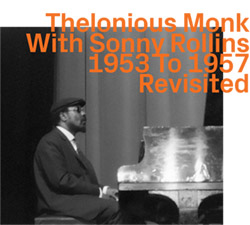



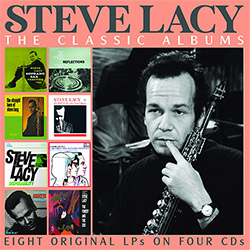

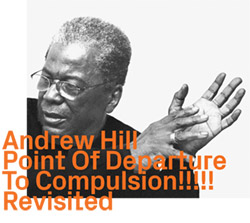
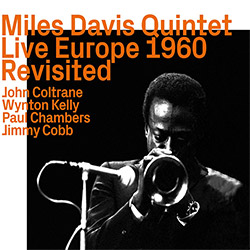

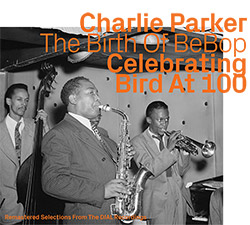

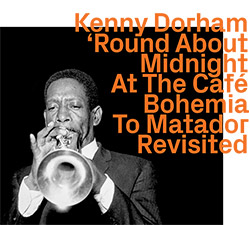



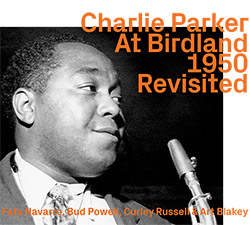

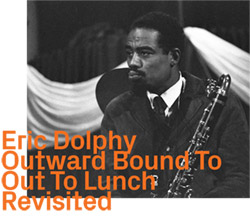

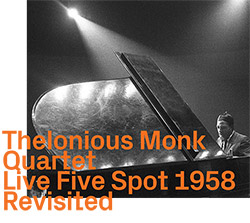

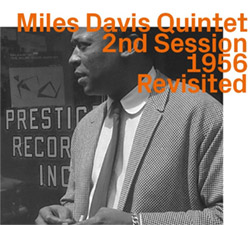

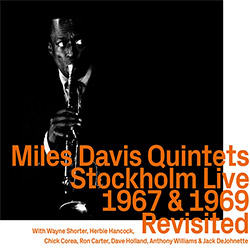
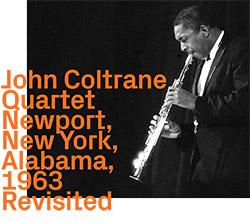





![BlueRing Improvisers: Materia [2 CDs]](https://www.teuthida.com/productImages/misc4/36513.jpg)








![Wheelhouse (Rempis / Adasiewicz / McBride): House And Home [VINYL]](https://www.teuthida.com/productImages/misc4/36462.jpg)
![+DOG+: The Light Of Our Lives [2 CDs]](https://www.teuthida.com/productImages/misc4/36009.jpg)


![Parker, Evan / Jean-Marc Foussat: Insolence [VINYL]](https://www.teuthida.com/productImages/misc4/36398.jpg)










![Deupree, Jerome / Sylvie Courvoisier / Lester St. Louis / Joe Morris: Canyon [2 CDs]](https://www.teuthida.com/productImages/misc4/36404.jpg)



![Eventless Plot | Haarvol: The Subliminal Paths [CASSETTE + DOWNLOAD]](https://www.teuthida.com/productImages/misc4/36232.jpg)










![Eventless Plot | Francesco Covarino: Methexis [CASSETTE + DOWNLOAD]](https://www.teuthida.com/productImages/misc4/36231.jpg)



![Das B (Mazen Kerbaj / Mike Majkowski / Magda Mayas / Tony Buck): Love [VINYL]](https://www.teuthida.com/productImages/misc4/36329.jpg)


![Eternities: Rides Again [CASSETTE]](https://www.teuthida.com/productImages/misc4/36247.jpg)
![Lopez, Francisco: Untitled (2021-2022) [2 CDs]](https://www.teuthida.com/productImages/misc4/36438.jpg)






![Money : Money 2 [2 CDs]](https://www.teuthida.com/productImages/misc4/35894.jpg)




![Klinga, Erik: Elusive Shimmer [VINYL]](https://www.teuthida.com/productImages/misc4/36258.jpg)
![CHANGES TO blind (Phil Zampino): Volume 9 - I Wave on a Fine Vile Mist [CD + DOWNLOAD]](https://www.teuthida.com/productImages/misc4/36061.jpg)

![Wallmart / Rubbish: Asset Protection [split CD]](https://www.teuthida.com/productImages/misc4/35900.jpg)


![+Dog+: The Family Music Book Vol. 5 [2 CDs]](https://www.teuthida.com/productImages/misc4/35897.jpg)
![Kuvveti, Deli : Kuslar Soyledi [CASSETTE w/ DOWNLOAD]](https://www.teuthida.com/productImages/misc4/36107.jpg)

![Brown, Dan / Dan Reynolds: Live At The Grange Hall [unauthorized][CASSETTE]](https://www.teuthida.com/productImages/misc4/36245.jpg)








![Palestine, Charlemagne / Seppe Gebruers: Beyondddddd The Notessssss [VINYL]](https://www.teuthida.com/productImages/misc4/36206.jpg)
![Palestine, Charlemagne / Seppe Gebruers: Beyondddddd The Notessssss [NEON GREEN VINYL]](https://www.teuthida.com/productImages/misc4/36207.jpg)

![Laubrock, Ingrid: Purposing The Air [2 CDs]](https://www.teuthida.com/productImages/misc4/35639.jpg)

![Yoko, Ono / The Great Learning Orchestra: Selected Recordings From Grapefruit [2 CDs]](https://www.teuthida.com/productImages/misc4/35841.jpg)









![Zorn, John / JACK Quartet: The Complete String Quartets [2 CDs]](https://www.teuthida.com/productImages/misc4/35609.jpg)

![Lonsdale, Eden: Dawnings [2 CDs]](https://www.teuthida.com/productImages/misc4/35480.jpg)



![Sorry For Laughing (G. Whitlow / M. Bates / Dave-Id / E. Ka-Spel): Rain Flowers [2 CDS]](https://www.teuthida.com/productImages/misc4/35985.jpg)

![Rolando, Tommaso / Andy Moor : Biscotti [CASSETTE w/ DOWNLOADS]](https://www.teuthida.com/productImages/misc4/36106.jpg)


![Electric Bird Noise / Derek Roddy: 8-10-22 [CD EP]](https://www.teuthida.com/productImages/misc4/35970.jpg)








![Elephant9 : Mythical River [VINYL]](https://www.teuthida.com/productImages/misc4/34624.jpg)



![Elephant9 with Terje Rypdal: Catching Fire [VINYL 2 LPs]](https://www.teuthida.com/productImages/misc4/35355.jpg)
![Deerlady (Obomsawin, Mali / Magdalena Abrego): Greatest Hits [VINYL]](https://www.teuthida.com/productImages/misc4/34876.jpg)







![Surplus 1980: Illusion of Consistency [CD]](https://www.teuthida.com/productImages/misc4/35069.jpg)
![Staiano, Moe: Away Towards the Light [VINYL + DOWNLOAD]](https://www.teuthida.com/productImages/misc4/35037.jpg)
![Coley, Byron: Dating Tips for Touring Bands [VINYL]](https://www.teuthida.com/productImages/misc4/17906.jpg)

![Lost Kisses: My Life is Sad & Funny [DVD]](https://www.teuthida.com/productImages/misc4/lostKissesDVD.jpg)